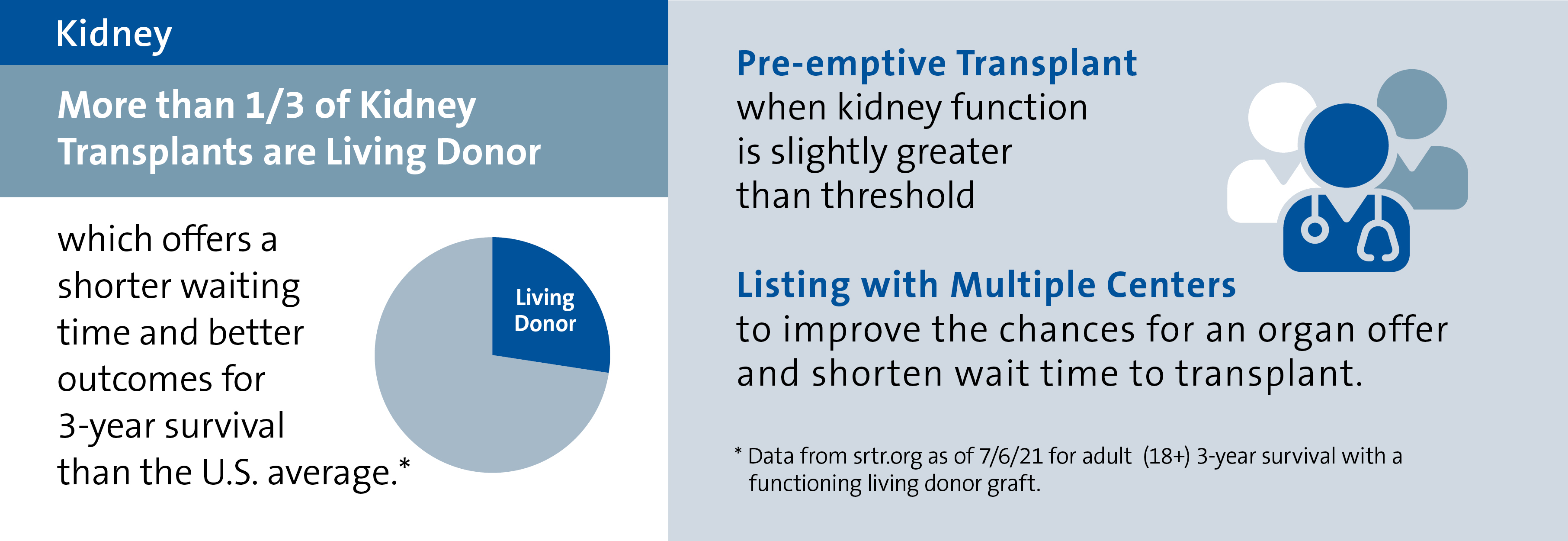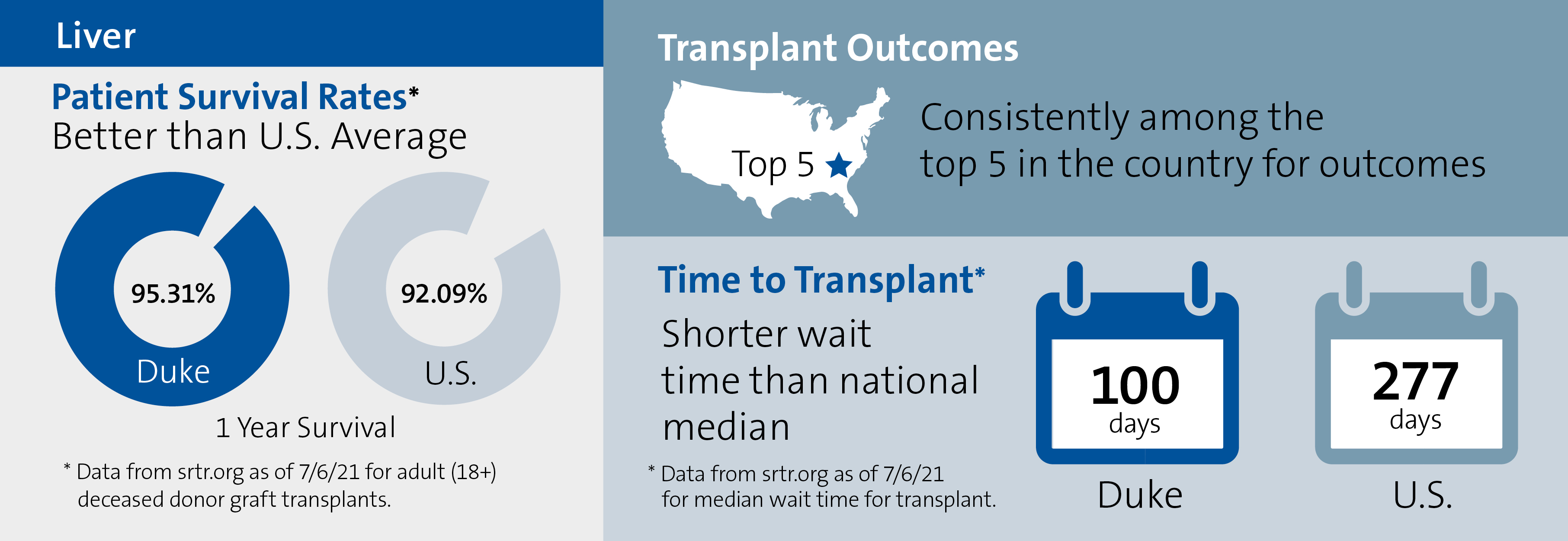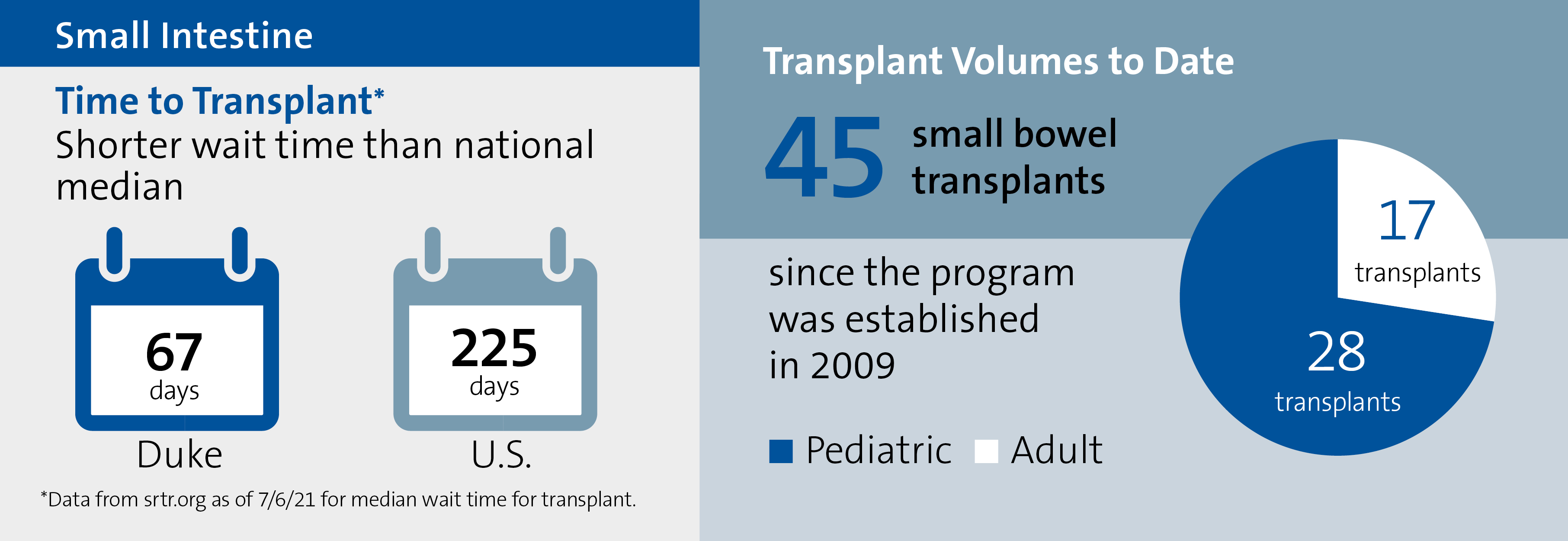To accommodate rapid growth in the organ transplant program, the Duke Transplant Center expanded its beds for abdominal transplant patients by nearly a quarter in June. The move increased the number of beds from 30 to 37, says Debra L. Sudan, MD, chief of the Duke Division of Abdominal Transplant Surgery.
“In addition to offering more beds, we also have much larger rooms for patients,” Sudan says. “These are very spacious and offer a more comfortable setting for visiting family members. Our teams can round without turning our backs to family members.”

Abdominal Transplant by the Numbers
When Sudan arrived in 2008, Duke averaged approximately 28 liver transplants each year. For the past three to four years, the program has completed between 100-to-140 liver transplants each year. Kidney transplants have doubled as well, Sudan notes, adding that Duke anticipates continuing fast growth because of its reputation as a referral center for complex procedures.
Kidney and Pancreas Transplant
Duke offers specialized care not available with other Kidney/Pancreas transplant programs, including transplants for patients with co-morbidities such as HIV, sickle cell, cardiomyopathies, and high BMI (up to 40); desensitization, and paired kidney exchange options for patients with compatibility issues; early referral options for patients with eGFR at or slightly above 20 mL/min/1.73 m2; and living-donor laparoscopic kidney removal.

Liver Transplant
Duke’s surgeons have special expertise in performing liver transplants and offer split-liver and pediatric liver transplants, laparoscopic and open resection of primary and metastatic hepatic tumors, and have excellent outcomes in one of the nation’s largest multi-organ transplant programs (simultaneous transplantation of the liver and the kidney, heart, lung, small bowel, and/or pancreas).

Small Intestine Transplant
Duke offers comprehensive evaluation and care for patients who need small bowel transplants. This is the rarest type of transplant performed nationally each year and Duke is one of only 10 centers active in 2020. Our program is led by experts in hepatology and transplant medicine, some of whom hold leadership positions in the Intestinal Rehabilitation and Transplant Association and the United Network for Organ Sharing (UNOS).
